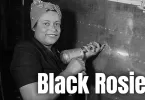Are you searching for your African-American ancestors and coming up short on information? It is not an uncommon issue in genealogy, due to the history of slavery in the United States, which goes back to the colonial days when our nation was part of Great Britain. Your African-American ancestors may have a long history in the United States, but how would you know it?
While you may ultimately have to do DNA testing to get genetic matches to help take your ancestry back further in time by sharing information with those matches, there are other, useful things you can do to lengthen the branches on your African-American family tree.
These are some of the most powerful research techniques you should be using…
Start with What You Know Now, and Move Backward:
It’s a basic genealogical tip for anyone, but especially important for African-Americans, as they may find it difficult to move back beyond the 1870 census, which is the first one done after the 13th Amendment abolished slavery. It is the first census where their ancestors are listed because they are free people for the first time. But, to get back to the 1870 census, you have to start with who you know now. Until 1870, you will use most of the usual genealogical research tips that anyone else would use, such as tracing your family line using birth, marriage, and death records, wills and probate records, newspaper records (including obituaries and news stories about your ancestors), and later census records.
Once You Get to 1870, Move Forward Again:
It may seem a little counterintuitive, but it works. Once you find your first freed ancestors in the 1870 census, look up information on all of their children, not just your direct line ancestor child. What you’re looking for is information on when that early, 1870 ancestor died, and you can often find that through looking at information on their children. Parents will often be buried near children, their names will be mentioned in children’s obituaries, and you may even find the 1870 ancestor’s obituary in old newspaper records by finding their child’s name mentioned in it as a survivor. The goal here is to find the date of death of that 1870 ancestor, so you can find their death certificate (or obituary, if no certificate was issued). Death certificates and obituaries usually mention the names of the parents… parents who were born into slavery, and who were already passed on by the time of the 1870 census. If you can find your 1870 ancestor again in the 1880 census, it will tell you where their parents were born. With names and birthplaces, you have clues to go on to take your family tree back even further.
Look for Patterns — When looking at the 1870 census, be on the lookout for patterns. Pay close attention to the names, ages, places of birth, residences, ethnicities, and genders of everyone living in the 1870 ancestor’s household. It will give you important clues to look at when confirming identities in later censuses and earlier records. Patterns are important. Families often lived close to one another. And, if you find an African-American family in the south living close to a Caucasian family of the same surname in the 1870 census, there is a good chance the African-American family may have been previously enslaved by the Caucasian family or some of their relatives, and took on the Caucasian surname when they were freed. An African-American family living nearby with the same surname as your 1870 ancestor may be a relative or may have been a slave to the same owner. These are excellent clues to go on.
Look at the 1867 Voter Registration Lists:
African-American males were given the right to vote after the Civil War with the 15th Amendment. If you know the state your ancestor lived in during 1870, chances are high it is the same as in 1867. If not, just search all the state voter registration lists until you find the male ancestor you know is yours, assuming he registered to vote. The voter registration lists tell how long someone has lived in the state where they registered, so if they are a new resident, you know you’ll need to look for them elsewhere going further back.
Be Sure to Search the Freedmen’s Bureau Records:
These are at the National Archives in Washington, D.C., though Ancestry and some other genealogical sites keep a smaller collection of them. You can find a ton of information on your 1870 ancestor here. The Freedmen’s Bureau was maintained between 1865 and 1872 and recorded information about freed African-Americans, such as marriages, medical records, and school records.
Don’t Discount the 1850 and 1860 U.S. Slave Schedules:
While these typically only included the gender and age of slaves in a slave-owning household, it can give you clues if you know or think you know the family who owned your 1870 ancestor’s family. Using the age and gender of your 1870 ancestor and his or her children, you can use those slave schedules to determine if your ancestor and/or their children were likely owned by that family during that time. You may get other clues as to possible relatives by the ages and genders of other slaves that you can’t match to your own family records.
Research Wills and Probate Records of Slave Owners:
If you know the name of the person who owned your 1870 ancestor or their parents, look for wills and probate records left by them prior to the Civil War, as slaves were usually left to the family members of the slave owner in these records. You can get names and relations of slaves, and discover who or where they went to. If you don’t know the slave owner’s name, check all the wills and probate records in the area where your 1870 ancestor lived, and you may find what you’re looking for. Once you’ve broken past the 1870 ancestor using vital records and/or obituaries, you can use these same documents to trace sales of their parents and siblings, and maybe even grandparents, which will give you more names for your family tree, and more avenues of further research into the past.
Check Old Newspaper Records for Information on Your Enslaved Ancestors:
Prior to the Civil War, runaway slave notices were routinely published in newspapers, both locally and nationwide, in the hopes that a slave who made it to a free state would be recognized and returned to the owner. Slaves were expensive investments, after all. There may also be stories about your enslaved ancestors, which may include information about their families. This information is usually in a newspaper if an enslaved person did something particularly noteworthy, either bad or good.
It is a challenging task to research your African-American ancestors prior to 1870, but it can be done. Just use the tips above, and see just how far back the records will take you. You may be surprised at just how far back in time you can actually go. It’s rewarding enough to find answers to make the journey worth it.




